The little ones came from the railroad tracks, like one does not imagine, but the world permits, dressed in filthy clothing and layered thick with dust. Their feet were bare.
ASSI lined them up in rows on the floor of the cement schoolroom and they sat in silence as a group of foreigners paraded in and took their spots in plastic chairs up front. The yellowing whites of their eyes lit up and crooked-teeth smiles looked back at us, translating the silent question of “who are these special people?!” In an organized and protocol-appropriate manner, the leaders instructed some of the well dressed children (railway kids now cared for in ASSI’s home) to place the garlands of marigolds around our necks.
These ones are beloved.
They are tough, trained to survive the streets, abandoned by home or too smart to stay there. Some wear the mask of fresh grief and some run around with toughened vigor to fight for themselves, and their little sister, of course, because at the age of 8 he must watch over his younger siblings. Small girls of six years sit folded on the floor, hair bleached from sun and malnutrition, mangled onto their heads; they hold babies. Each one’s eyes gaze up, and I look into a pair, smile, and grin bigger as she responds expectedly, a shy smile and bow of her head- she’s been noticed by the woman with mysterious fair skin and blue eyes. It’s my universal language. I’ve traveled so much I almost don’t bother learning words anymore.
Three tables hosted the doctors, and a fourth table was piled high with medicines and vitamins to treat minor illness. Outside were benches sitting in the sun, with buckets and a stack of toothbrushes.
Staress, the other nurse, and I took the children, one by one, and sat them on the bench, kneeling down to pour water over their legs, lather them with soap, and rinse the layers of gray dust back into the earth. Little feet drew away as we touched tender areas of embedded glass and infected cuts, present on almost every little one because they run barefoot through the city. They held out their arms as we ran their hands through ours and they caught streams of water in theirs, palms up, to splash on their face and rinse it clean. They’d look up with water dripping from their eyelashes and chins and it was one of my favorite moments of my life, like a little twinkle of purity in a not-so-innocent life. They are just children, the same everywhere—these just took a lot more shampoo to get their heads clean.
And there was Sam, the 14-yr-old boy from Brownsburg, tagging along as one of the doctor’s sons. It was his first plane ride, and his first time treating someone’s lice, but after a dozen nitty heads, he became the official team delouser, and probably the most employable one of the team. He can also eat any degree of spicy Indian food, so I have a lot of respect for him.
After two days of clinic in Varanasi, we’d cared for 100+ Indian children and adults. It might have looked like simple baths and bandages and vitamins, but we actually did a lot during that time. Rich Americans squatted down and washed and bandaged the feet of dirty, broken babies that only know the world as harsh. Doctors Neil and Jim, who are educated enough to treat the world’s most complicated diseases, gently looked in ears and felt bellies and prayed for mercy and healing, like daddies caring for their own sweet children.
A nurse trained to treat military wounds picked out glass from tiny feet and bandaged them safe for a day of relief.
A midwife myself, I got to hold the hand of a young mother whose baby recently died at birth and apologize and pray for her in the most sincere way, because I’d just spent two years in Africa bearing the pain of mothers and babies lost from childbirth.
I’m so sorry.
Coming to places like India helps us say that in a deeper way, like we understand just a little bit better how our Father God mourns for us his beloved, and how it is to be Jesus and feel love toward humanity.
And the other humble thing I always utter during experiences like this medical trip to India is this:
Thank you. Thank you, God, for the opportunity to touch them and see them and share this moment with them and feel your love for them and offer them this moment of dignity. It is a privilege to alleviate their suffering.
It is such a privilege.
We can’t accomplish much in a few weeks, but we can share presence, acts of dignity, medicine to relieve suffering, and the universality of God’s love for each one of us.
And it all starts with looking into eyes, touching of skin, and for some of us, placing a stethoscope to listen inside to the beat that is the same … all over the world.
-Crystal Bailey, CNM- Certified Nurse Midwife
Crystal Bailey is a Certified Nurse Midwife who was raised in Brownsburg. She has traveled extensively with missions organizations and humanitarian medical groups. She says her “service bug” started during her high school mission trips with Brownsburg Christian Church, and later with Taylor and Emory Universities. Most recently, she worked with Doctors without Borders in South Sudan.

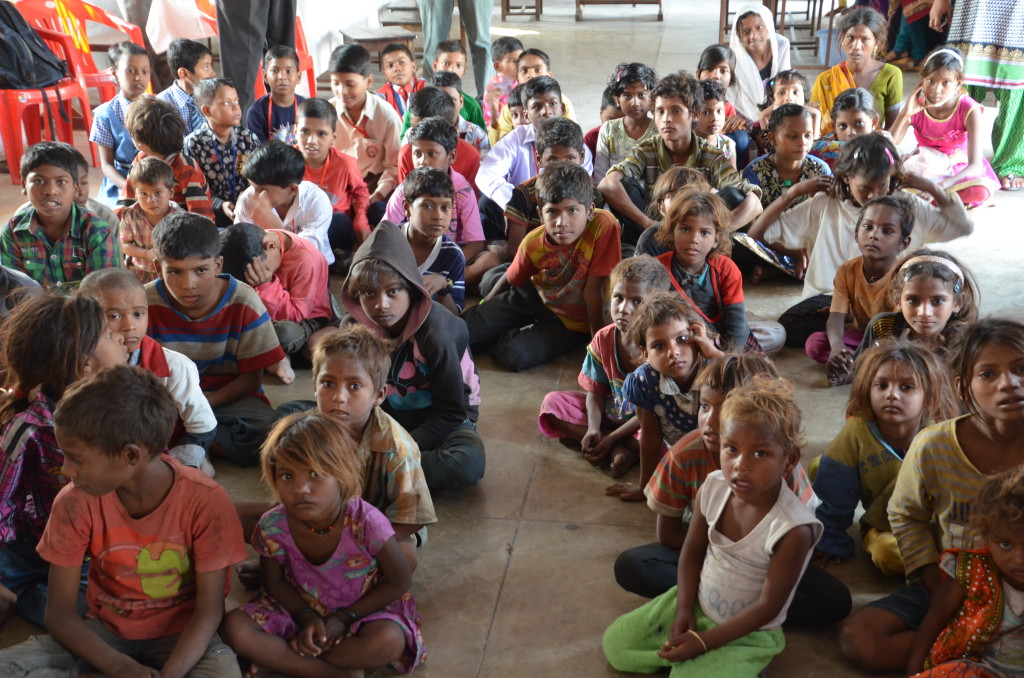
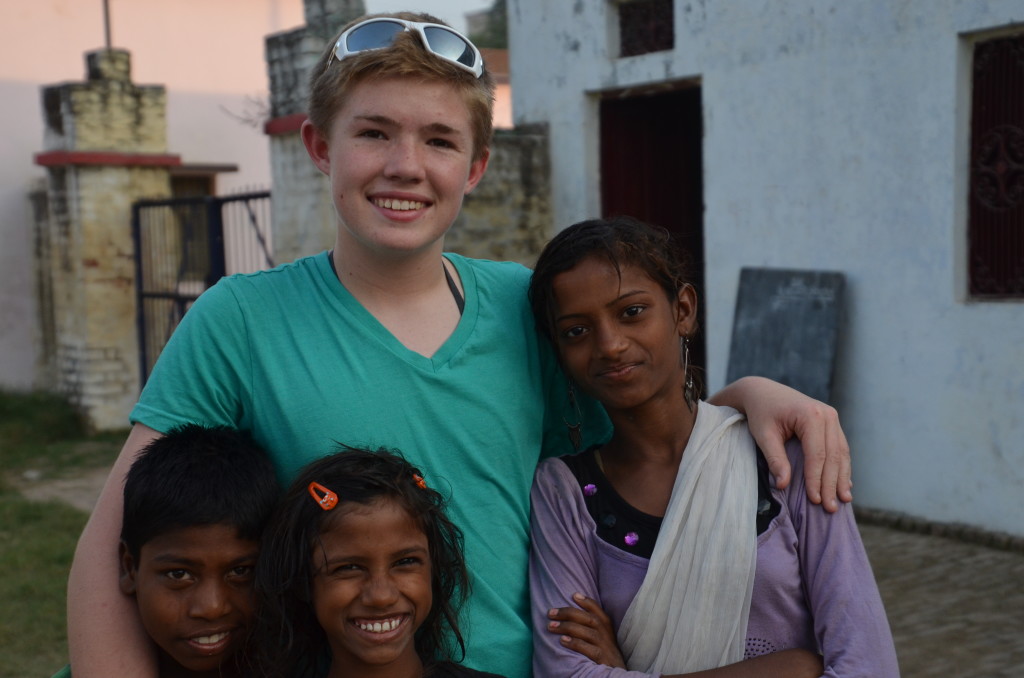
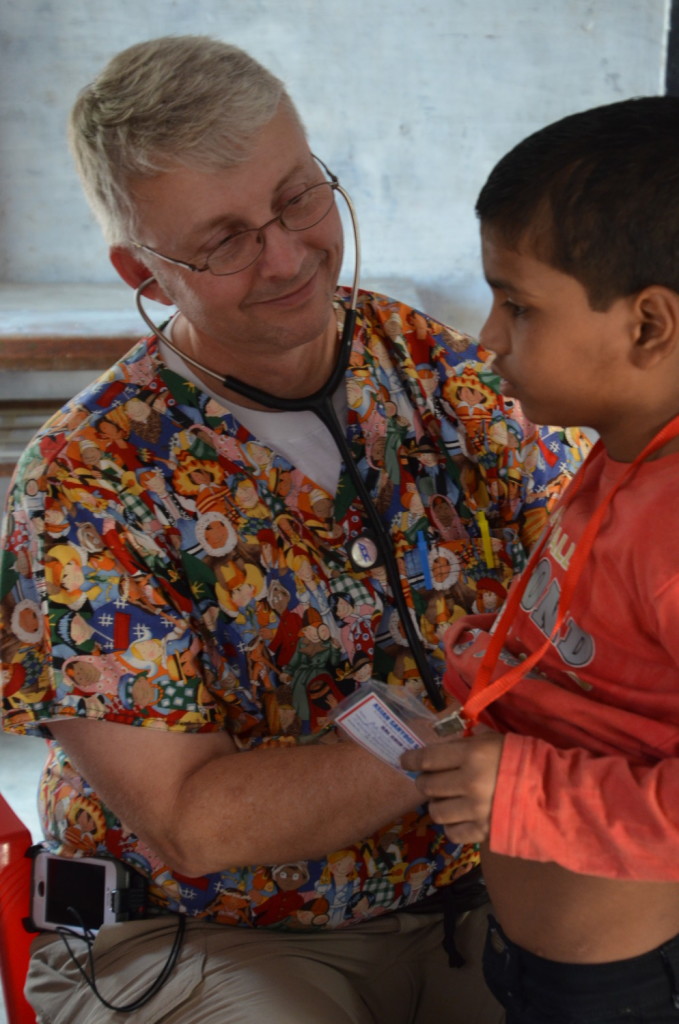
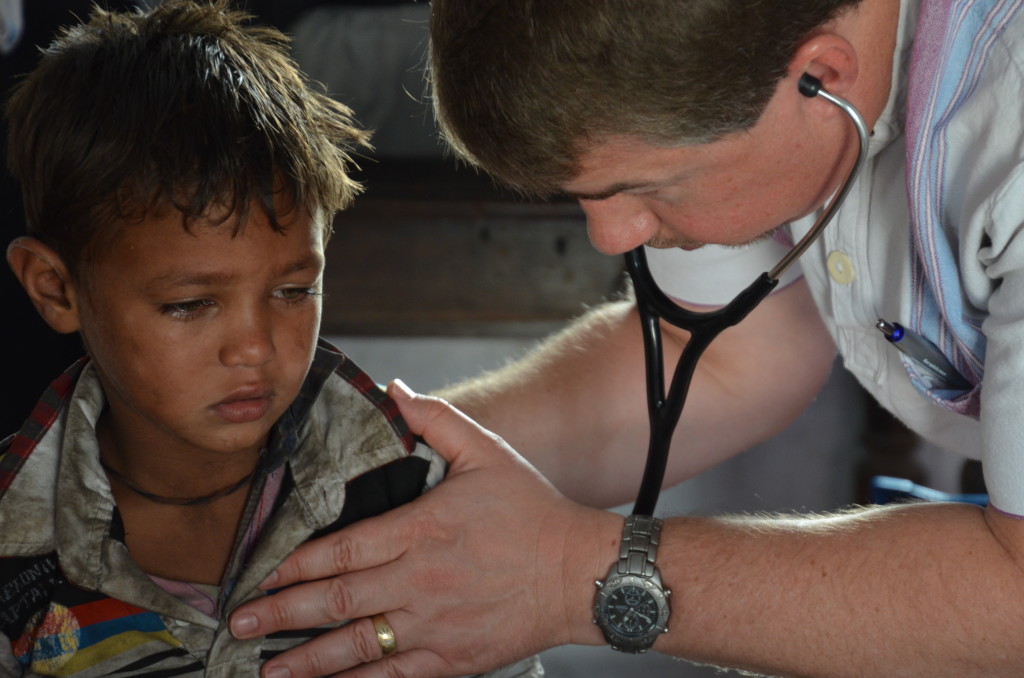
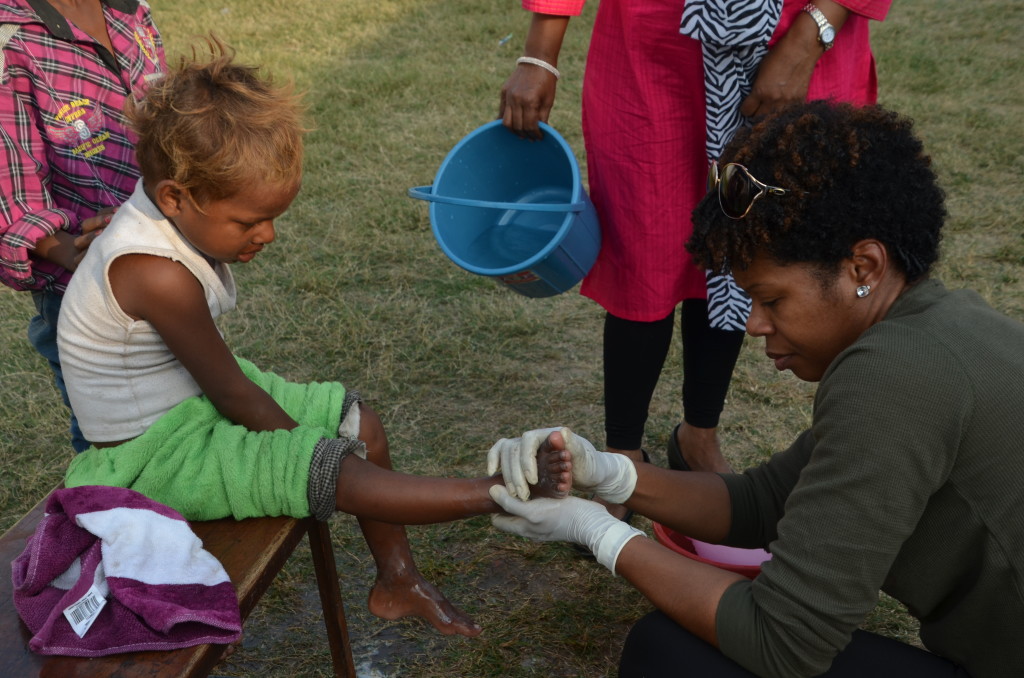
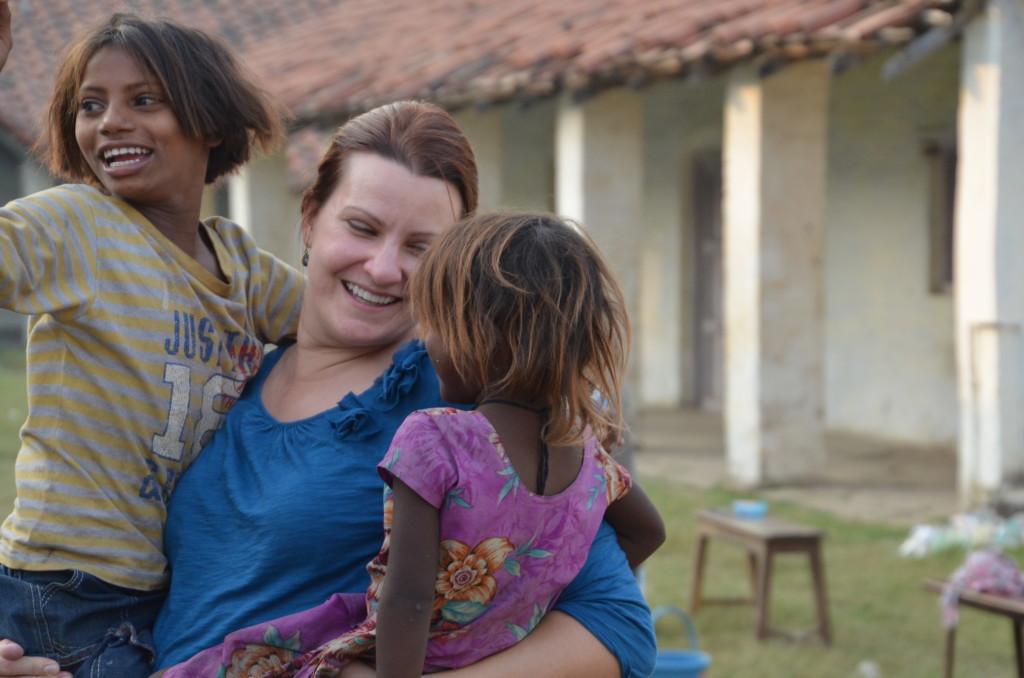
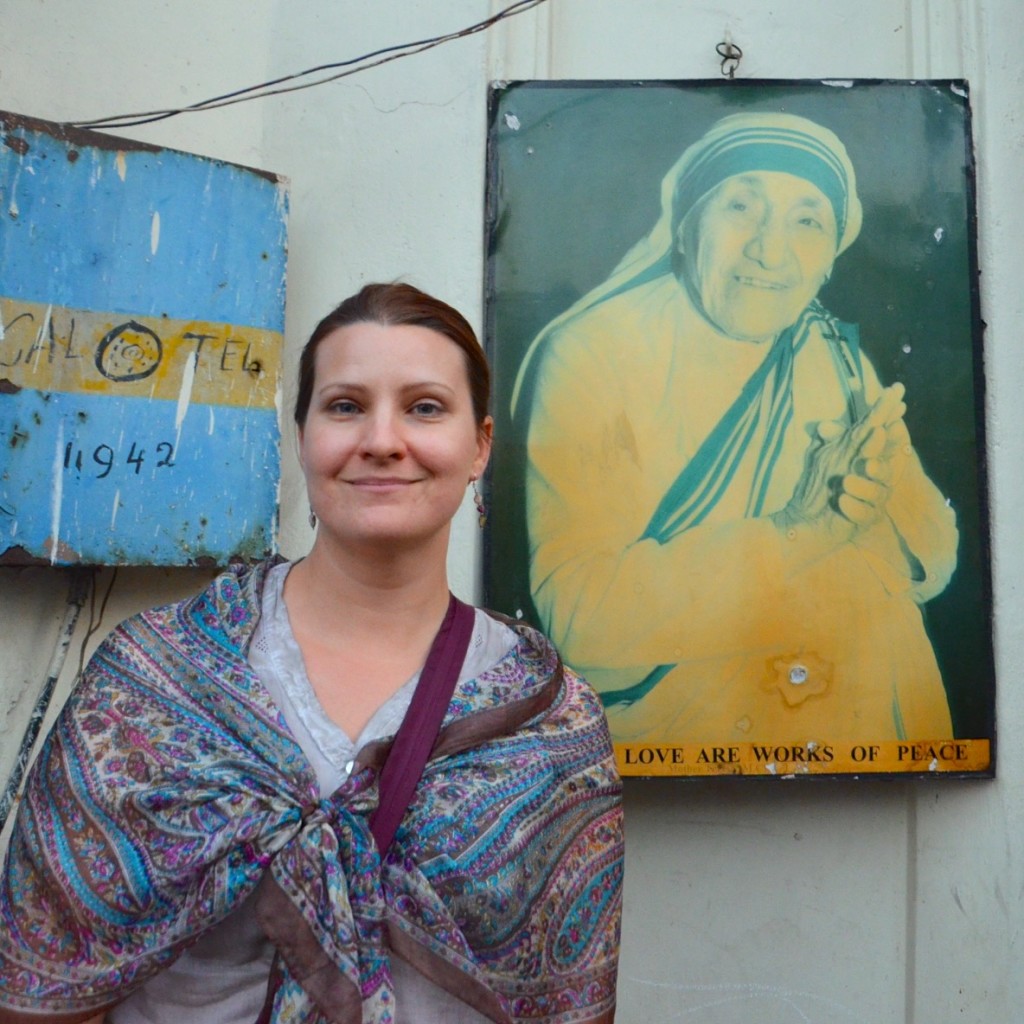






Thanks to the entire Indian Team for the commitment of time and their hearts
Crystal – thanks for sharing your time, talent and heart